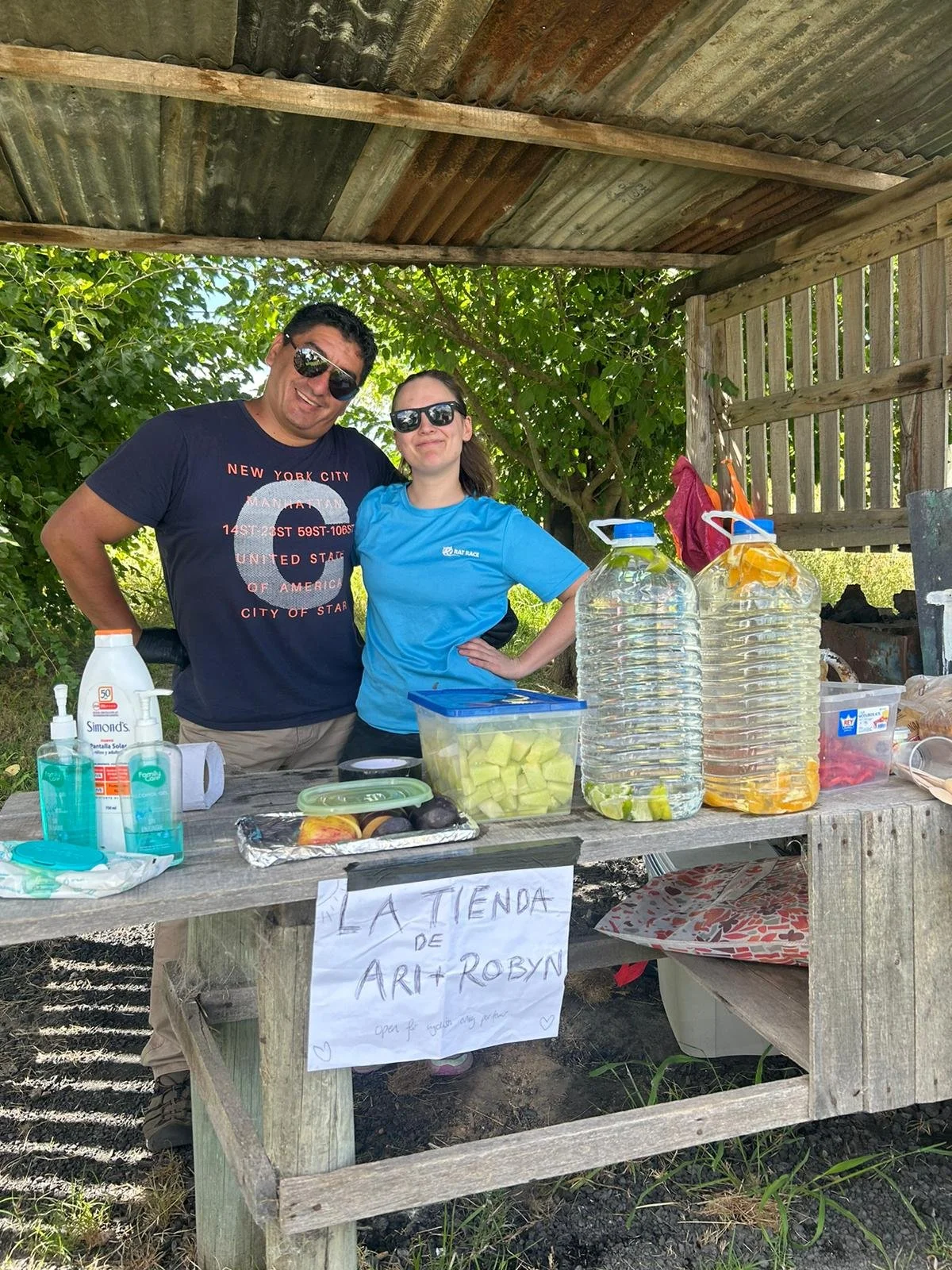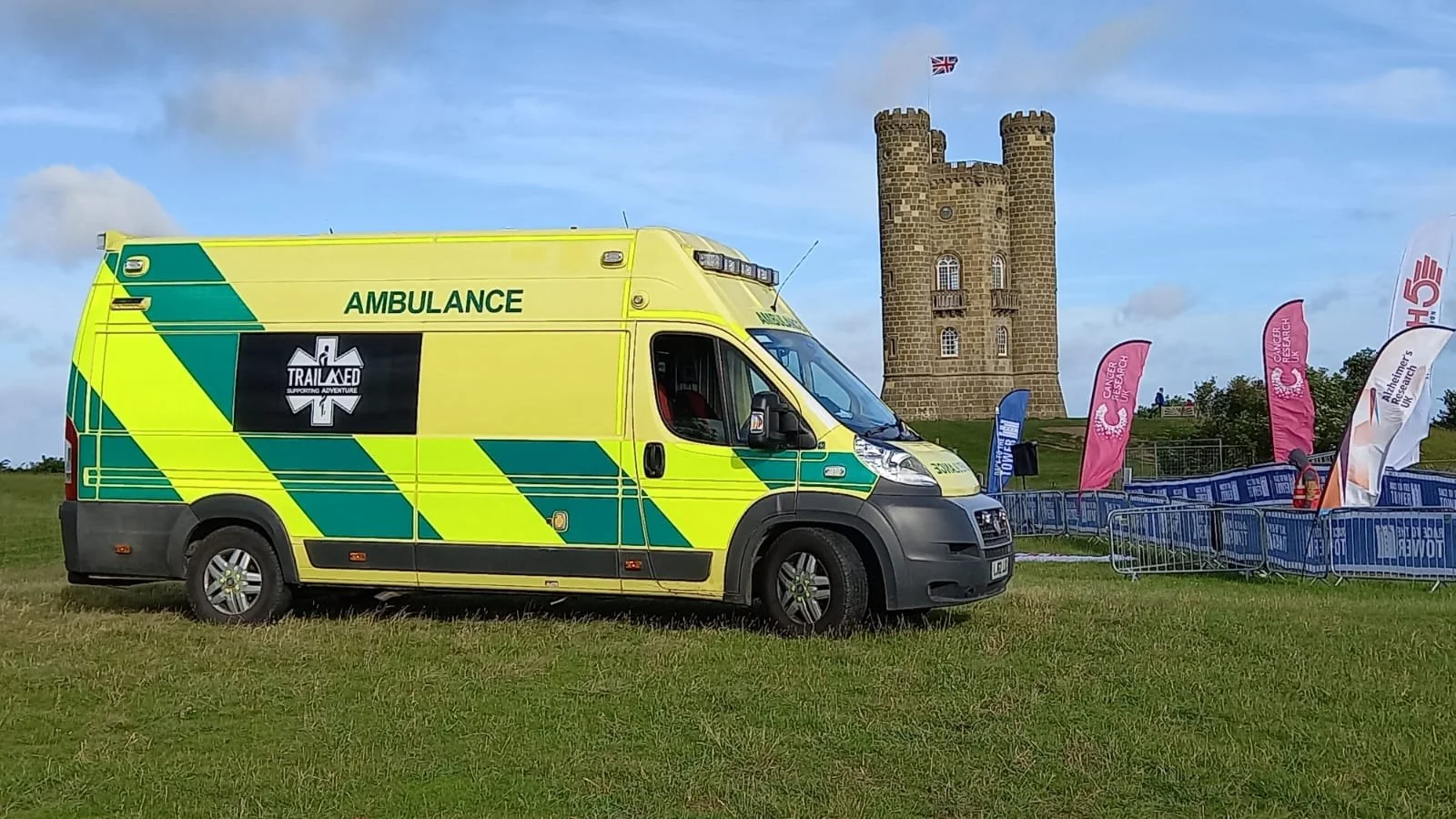Beyond the Horizon: Navigating Adventure, Expedition Medicine, and Our Environmental Footprint
Yesterday, June 5th, the world paused to observe World Environment Day. While we might be a day late to the official party, the spirit of environmental stewardship is a year-round commitment that resonates deeply within our community.
For those of us drawn to the untamed corners of the earth – the adventure travellers, the ultra-marathoners pushing physical boundaries in remote landscapes, and the expedition medics dedicated to keeping them safe – our passion is intrinsically linked to the health of our planet. But let’s be honest: our pursuit of exhilarating experiences often leaves a tangible footprint. Today, we want to explore that impact and, more importantly, delve into how we can minimise our environmental wake, particularly as a medical company operating in this unique space.
Our world is one of breathtaking vistas, raw challenge, and profound human connection. From the snow-capped peaks of the Himalayas to the scorching sands of the Sahara, the vibrant reefs of the Pacific to the dense jungles of the Amazon, we seek out the wild. This immersion fosters a deep appreciation for nature, inspiring us to protect it. Yet, the very act of reaching these remote locations, supporting our expeditions, and providing medical care carries an environmental cost.
The Carbon Trail: Adventure Travel and Overseas Ultras
The most obvious impact comes from transportation. Flying to a distant trailhead for a multi-day trek or chartering flights for an overseas ultra-marathon generates significant carbon emissions. While we often strive for efficiency and consolidate travel, the sheer distances involved mean air travel remains a major contributor.
Beyond the journey itself, our presence in these environments can lead to localised impacts. Fragile ecosystems are susceptible to human disturbance. Off-trail trekking, improper waste disposal (even biodegradable waste can take a long time to break down and disrupt local ecosystems), and the use of non-biodegradable products can scar landscapes and threaten wildlife. Even the seemingly innocuous act of setting up camp can compact soil, damage vegetation, and disturb sensitive habitats if not done responsibly.
While promoting self-sufficiency, overseas ultras often require extensive logistical support. This can include vehicles transporting aid stations, medical teams, and supplies across vast distances, adding to carbon emissions. The sheer volume of participants can also strain local resources, particularly water, and generate significant waste if not meticulously managed. The trail can easily become littered with discarded energy gel wrappers and plastic water bottles if organisers and participants aren't vigilant.
Reduce, Reuse, Recycle: Carry a reusable water bottle and filter, pack your own snacks in reusable containers, and avoid single-use plastics wherever possible. If you must use disposables, ensure they are disposed of responsibly in designated recycling or waste bins AND event better connect with local hero’s like Ari!
Expedition Medicine: A Balancing Act of Care and Consequence
Our field of expedition medicine presents a unique paradox. Our primary goal is to preserve life and health in challenging environments. This often necessitates the use of equipment and supplies that, by their very nature, are designed for single use to maintain sterility and prevent the spread of infection. From sterile dressings and syringes to IV fluids and disposable gloves, a significant portion of our medical kit falls into this category.
Consider a medical emergency in a remote location. The priority is undoubtedly patient care. This often means using the most effective and safest tools available, which frequently happen to be single-use. The alternative – attempting to sterilise and reuse equipment in a backcountry setting – presents an unacceptable risk of infection. So, while we are acutely aware of the waste generated, the imperative of patient safety always comes first.
Furthermore, the logistical demands of expedition medicine can contribute to our carbon footprint. Transporting essential medical supplies, often by air or specialised vehicles, to remote locations adds to emissions. The need for reliable power sources for medical equipment, whether generators or batteries, also has an environmental consideration.
Minimising Our Impact: A Collective Responsibility
Recognising these challenges is the first step. The good news is that we, as individuals and as a community, have the power to make a difference. Minimising our impact and offsetting our detrimental consequences isn't just an aspiration; it's an ethical imperative.
For Adventure Travellers and Ultra-Runners:
Mindful Travel: To reduce emissions from multiple take-offs and landings, prioritise direct flights where possible. Consider travelling by train or bus for shorter distances. If driving, carpool. Offset your flight emissions through reputable carbon offsetting programs (though remember that offsetting is a last resort, not a substitute for reduction).
Leave No Trace Principles: These principles are the bedrock of responsible outdoor recreation. Plan ahead and prepare, travel and camp on durable surfaces, dispose of waste properly (pack it in, pack it out, including human waste where appropriate), leave what you find, minimise campfire impacts, respect wildlife, and be considerate of other visitors. These principles are not just guidelines; they are fundamental to preserving the wild places we love.
Support Local, Sustainable Tourism: Choose tour operators and event organisers who demonstrate a clear commitment to environmental protection and community benefit. Research their practices regarding waste management, local employment, and conservation efforts. Often, our clients will use local guides for mountain ascents and support local accommodation providers.
Reduce, Reuse, Recycle: Carry a reusable water bottle and filter, pack your own snacks in reusable containers, and avoid single-use plastics wherever possible. If you must use disposables, ensure they are disposed of responsibly in designated recycling or waste bins.
Educate Yourself and Others: Learn about the ecosystems you're entering and their vulnerabilities. Share your knowledge and encourage others to adopt sustainable practices.
Often, our clients will use local guides for mountain ascents and support local accommodation providers, including the sourcing of delicious local foods!
For TrailMed and Other Medical Companies:
This is where the challenge becomes more nuanced, particularly with the inherent need for sterile, single-use products. However, there are significant steps we can and are taking:
Product Innovation and Sustainable Packaging: At TrailMed, we are actively addressing this. Our new range of bundle products are a prime example. By packaging essential items together, we reduce the amount of individual packaging required. Crucially, this packaging is designed to be recyclable and reusable. This means less waste heading to landfills and the potential for our customers to repurpose the packaging for other uses, extending its lifecycle. We are constantly exploring new materials and designs that minimise environmental impact without compromising product integrity or sterility.
Responsible Sourcing: We are committed to working with suppliers who adhere to ethical and sustainable manufacturing practices. This includes considering the environmental impact of raw material extraction, production processes, and transportation.
Waste Management Partnerships: Where possible, we explore partnerships with organisations that can safely and responsibly manage the disposal of medical waste. This is particularly challenging in remote environments, but we are always seeking innovative solutions and best practices.
Education and Awareness: We have a responsibility to educate our customers – adventurers, ultra-runners, and fellow medics – on the proper disposal of medical waste in the field. Clear guidelines and practical advice are crucial to minimise environmental harm.
Operational Efficiencies: Just like our customers, we look for ways to reduce our own carbon footprint. Car-sharing on UK events is a practical and effective step we've already implemented to reduce emissions from our ground operations. This not only lowers our carbon footprint but also fosters team cohesion and reduces logistical complexity. We're continually evaluating our logistics, energy consumption at our facilities, and overall operational practices to identify areas for improvement.
Exploring Reusability (Where Safe and Practical): While sterility is paramount, we are constantly monitoring advancements in medical technology. Are there certain components of our kits that could be designed for safe, multi-use applications in specific scenarios? This requires rigorous testing and adherence to medical standards, but it's a conversation we're always having. For example, robust trauma shears can be cleaned and reused, unlike many other disposable items. We focus on providing high-quality, durable versions of these items.
Offsetting Remaining Emissions: While reduction is always the primary goal, we are actively investigating reputable carbon offsetting programs to compensate for the unavoidable emissions generated by our operations and product lifecycle. This could involve investing in reforestation projects, renewable energy initiatives, or other certified carbon reduction schemes.
While reduction is always the primary goal, we still need to maintain our high levels of patience care and the ability to convey patients to hospital. This is why we are actively investigating reputable carbon offsetting programs to compensate for the unavoidable emissions generated by our operations and product lifecycle.
The Green Agenda: A Journey, Not a Destination
Integrating a "right and green agenda" into a medical company, especially one operating in the niche of expedition medicine, is an ongoing journey. It requires constant innovation, critical self-assessment, and a willingness to challenge established norms. It's about finding that delicate balance between providing the best possible care and safeguarding the planet we all depend on.
At TrailMed, we believe our passion for adventure, for pushing human limits, and for ensuring safety in the wild, should be intertwined with a profound respect for the environment. World Environment Day serves as a powerful reminder that our actions have consequences, but also that we have the collective power to shape a more sustainable future. By making conscious choices, embracing innovation, and fostering a culture of environmental responsibility, we can ensure that the breathtaking landscapes we explore today remain pristine for generations of adventurers to come.
The trails we run, the mountains we climb, and the remote corners we serve are not just playgrounds; they are precious, irreplaceable ecosystems. Let us all strive to be guardians of these wild places, leaving behind only footprints, and taking with us only memories.
-Team TrailMed
#SupportingAdventure



